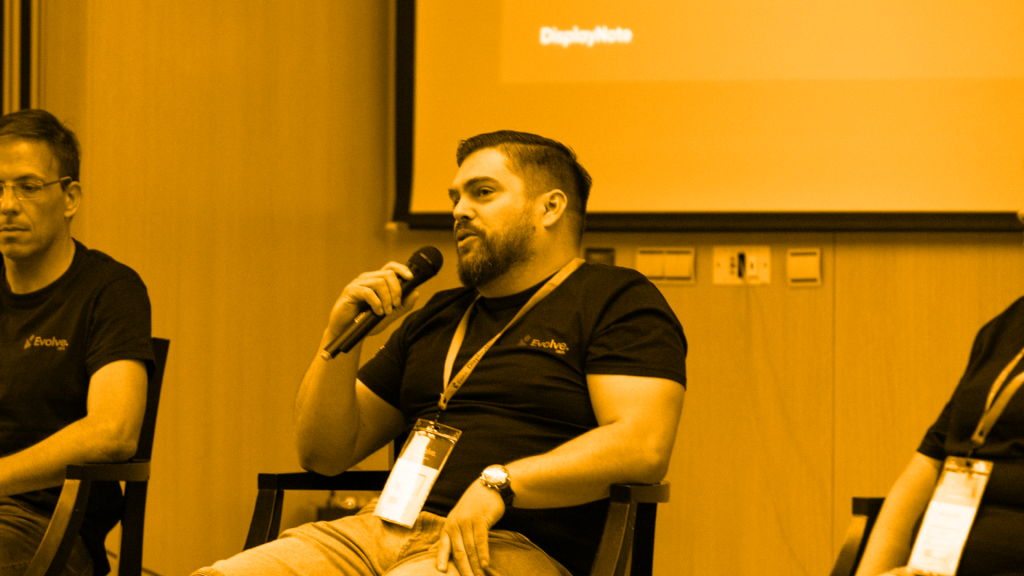
Why collaboration helps an organisation prosper.
With today’s technology, physical boundaries such as geographical distance are becoming less and less restrictive in the way business is done.
Businesses no longer only have to compete with businesses located in their own geographical vicinity, but they have to compete with businesses all over the world.
This means that now, more than ever, collaboration at work is more important than ever before and will become increasingly so.
The internet and cloud computing have provided tools enabling employees to collaborate with their colleagues easily and effectively, whether they are together in the office, or working across different locations. Such tools include mobile phones, messaging apps, and wireless presentation systems.
We previously spoke about how collaboration isn’t this new trend – we’ve actually been collaborating all our lives. So let’s discuss why collaboration in the workplace just makes things so much better.
The sharing of skills.
One of the main benefits of collaborative working is so a group of people work together and bring their own skillsets and knowledge to a project. Take for example, a Marketing team discussing the launch of a new product. Each person will have their different strengths. One may have a talent of promoting the product, through various channels. Another may have a particular flair for copywriting. Someone else is a genius at designing the collateral. And another could be passionate about organising the launch event. But they key thing here is for these people to collaborate. If these people were left to work on their own segments in isolation, everything would be disconnected, and the product launch could be an epic fail. In addition, companies that promote cross-departmental working, leads to shared skillsets, upskilling and finding best fit people for roles. For example, by working in another department or discipline, you could discover a latent skillset. This not only benefits the company with a broader skilled workforce, it also boosts staff morale, as they are encouraged to learn new skills.
Challenge ideas.
By fostering a culture of openness and transparency, ideas can be challenged in a more constructive way. Having a few people involved generates fresh ideas and new perspectives and can ignite inspiration between colleagues to produce something fantastic. Even if one person comes up with the idea, the collaborative inputs from others can change that idea from good, to brilliant. Netflix is an example of a company who do this really well. They look for employees who are innovative: who challenge prevailing assumptions when warranted, and suggest better approaches. They also look for courage in potential employees: people who will say what they think, even if it’s controversial, and they question actions inconsistent with the company’s values. They also look for people who are non-political when it comes to disagreeing with others, and when they do disagree, they do it with upmost respect.
Sharing the workload.
It’s extremely important for a company to provide a culture where it’s ok to say you’re struggling and it’s ok to ask for help. It’s all too common to not ask for help, for fear of being thought of as weak. Work can get overwhelming at times. And if something is left down to one person, even if they had all the skills required to complete it, they could feel the pressure. Collaboration allows employees to share the workload, ensuring nobody feels stressed or anxious, and boosts staff morale. It would be disadvantageous for the organisation if their employees were burdened with work and struggle to work to the best of their ability. Building a support network into an organisation, one that facilitates teamwork, can lead to a shared workload.
Engages remote and ‘work from home’ employees.
Despite all the benefits of remote working, it’s widely reported that remote or work from home employees can feel disengaged from their colleagues, and from the organisation itself. By promoting a high level of collaboration, a company ensures that all employees benefit from real-time information and communication. Tools such as smartphones, tablets, and wireless presentation systems really boost team morale, and breaks down geographical barriers. This means remote employees are more engaged, and will benefit from the knowledge and skills of their colleagues, no matter where they are located.
Moves a company more effectively towards its goals.
An organisation never sets out to have departmental silos, but it is a by-product of working across distinct business units. When an organisation works in departmental silos, it can have a hindering effect. Individual employees work towards individual goals, without thinking of the outcome of the entire organisation. In order to help disintegrate these silos, an organisation-wide goal should be set, as opposed to departmental goals. And Internal Communications should be super effective (read why here). When a workforce openly shares information and are able to communicate easily, they’re able to work at the best of their ability. A study found that 86% of respondents blame a lack of collaboration or ineffective communication for workplace failures. Collaboration is necessary for an organisation to move forward and prosper.
Final thoughts.
To reiterate, collaboration is crucial in today’s world of flexible and remote working, and abundance of technology. It’s essential that an organisation promotes collaboration throughout its workforce, and provides effective tools to help enhance collaboration.
One such tool is a wireless presentation solution, which allows employees to share information to a main meeting room display, whether they are in the room, or working remotely. During this, other employees can contribute and collaborate with annotation tools, file sharing options and video conferencing capabilities.
Want to stay in the loop?
Keep up-to-date with everything DisplayNote – including new releases, job openings, and customer giveaways.
Don’t worry, we’ll not spam you and we’ll never share your email with anyone






